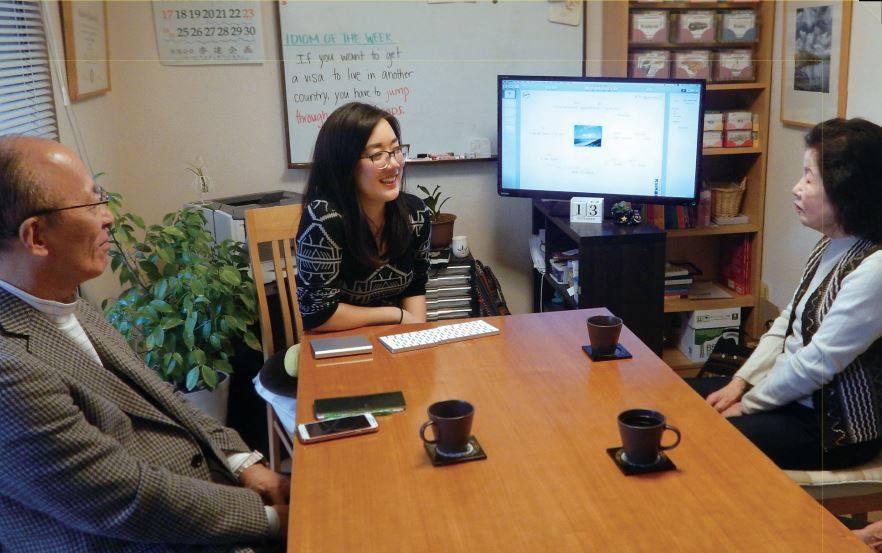Hello from Jim at Smith’s School of English, Sagamihara, Japan. Recently I’ve been thinking about empathy in teaching English, and reflecting on my own experiences as a student. I remember taking Spanish courses in high school and not learning much. We listened to the teacher and studied for a test. The teacher did his job with little enthusiasm. It was dry, boring, and no fun.

First English Teaching Job
Long ago I landed my first job as an “English teacher.” I looked good in a suit and was a native speaker of English. Sadly, that’s all that was required. So you can imagine what kind of a “teacher” I was. I had no idea what I was doing, let alone the importance of empathy in teaching English in Japan , but I looked good in my suit! Those poor students!

Company English Teaching
In time, I got better at the job, completed a TEFL course, attended English teaching seminars, etc. Next came supervising and training new “teachers.” Most of them were fresh out of university, coming to Japan to experience the culture for a couple of years, and use the company as an anchor. Many didn’t care about job performance. It was frustrating for me as a trainer, and perhaps even moreso for the students. I could see the frustration in their faces, but still didn’t really pay attention to how it felt to be in their shoes. Eventually I came to know that empathy in teaching English is a key ingredient to becoming a competent teacher in Japan.

Japanese Language Class
My rude awakening came upon enrolling in a 6-month Japanese language course at the YMCA in Sagamihara. Classes were twice a week- Monday and Friday. We had a different teacher each day. I was surrounded by people from the Philippines, Vietnam, Taiwan, and China. There was no spoken English.
Teachers, Good and Bad
The pace was too fast for me- two chapters a week from the textbook with not enough time to absorb much of it. Our Friday teacher was fantastic. She adjusted to us and went at our pace. Her ability to assess and react demonstrated that she was a pro and understood empathy in teaching. Monday’s teacher didn’t slow down and I could tell she was inexperienced. Comparing those two teachers probably taught me more about teaching than the intended purpose of learning the Japanese language.

Empathy in Teaching English Comes Naturally at Smith’s School of English
Point? Smith’s School of English teachers have all been through the same thing in one way or another. We’re committed to living in Japan and teaching students in a way that we would like to be taught. The company vision is clear. We know every student well and aren’t the young, inexperienced “teachers” you’ll find in larger companies. Our youngest is probably Dorothy, owner of Smith’s School of English in Azamino, Yokohama. She is very well-experienced, has lived and taught in other countries, and speaks 3 or 4 languages, which is simply amazing. Learn more about Dorothy here.

Empathy in teaching English comes naturally to Smith’s teachers. Our time in Japan and with Smith’s School of English has given us the know-how and trust from our students and communities alike. But most of all, we really enjoy what we do! Thanks for reading!
Jim
Smith’s School of English, Sagamihara, Kanagawa, Japan http://smithweb.co.jp/sagamihara/

Leave a Reply